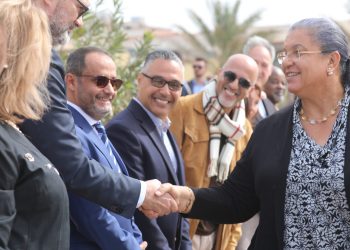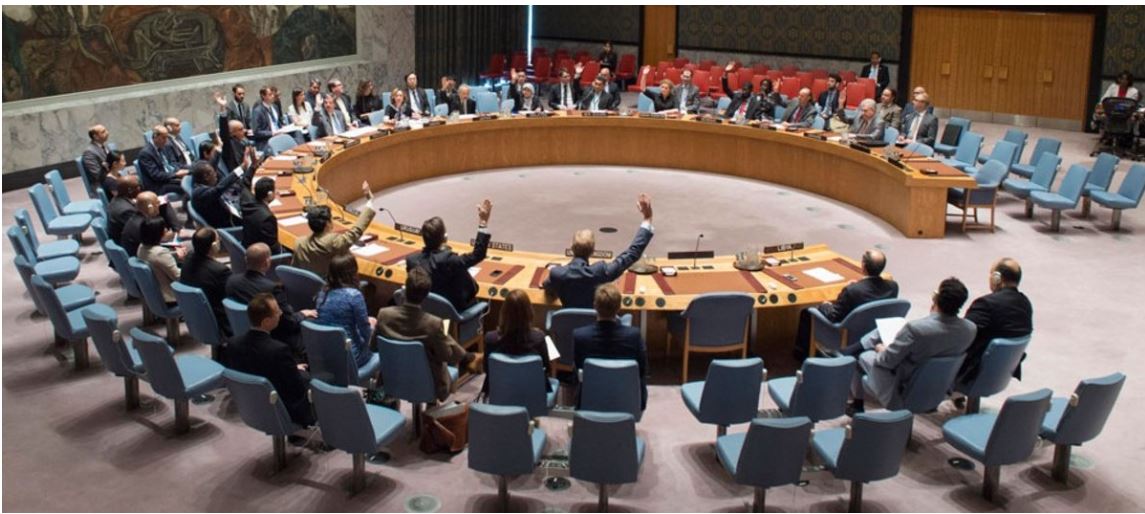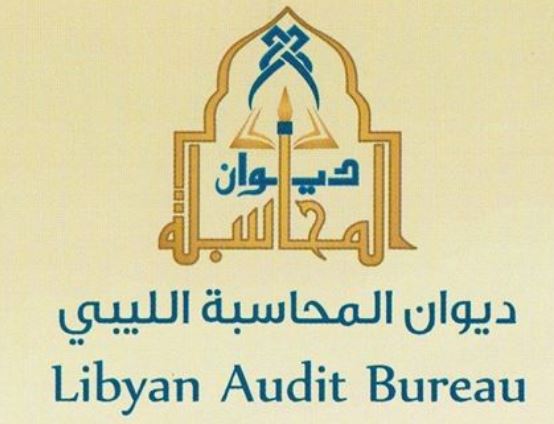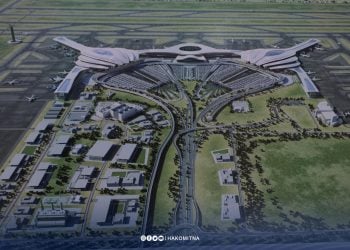By Libya Herald reporters.
Tunis/Tripoli, 11 December 2015:
The UN-brokered Libya Dialogue’s Libyan Political Agreement (LPA) will be signed on 16 December, it . . .[restrict]was announced in Tunis today. The new was given by deputy House of Representatives (HoR) president Emhemend Shouaib and the General National Congress’ (GNC) deputy president Salah Makhzoum following two days of Libya Dialogue talks in the Tunisian capital chaired by UN Special Envoy Martin Kobler.
According to Shouaib, the agreement will be probably signed in Skhirat, Morocco, scene of much of the Dialogue’s earlier negotiations. Calling on Libyans to unite, he said that he and the other members of the HoR negotiating team had the backing of 92 HoR members to sign.
With the most of the boycotting HoR members also approving the LPA, that constitutes a majority.
The UN Support Mission in Libya (UNSMIL) has consistently said that LPA, once signed by the Dialogue delegates, would itself be the basis of a new legitimacy in Libya and there would be no legal requirement for a vote by the HoR or the GNC. Shouaib, however, said that the HoR would vote on the matter, but not until after the signing. He also added that it might take somewhere other than Tobruk, which has been the HoR’s base since it started in August last year.
The announcement came at the end of the two days of talks that, according to more than one of the delegates, seemed at times to be going nowhere.
Today’s discussions which included most of the main party political leaders, including this time Abdulhakim Behaj together with mayors and representatives from many municipal councils, were supposed to come up with the names for the two extra deputy prime ministers and the senior minister who are to join the six others, already named, in the proposed presidency council.
It did not happen.
Considerable time was spent arguing not about who should be appointed but who should chose them. Members from the Congress said they should select the extra deputy prime minister who is to come from the south. They were not especially interested in the senior minister, also to come from the south, and were prepared to let the HoR team chose the extra deputy PM from the east.
In the end, it was agreed that the southern municipal representatives together with Makhzoum, from Sebha, and HoR delegate Saleh Hama, from Ghat, would select a name which would then be endorsed by the GNC delegates attending the talks. This would be done before the signing on 16 December.
Shouaib also repeated that if the unity government could not go to Tripoli because of security problems, it would operate from somewhere else in the country.
Belhaj’s Nation Party set itself apart from other parties at the talks, arguing that the time was not yet right to sign the LPA. The National Front also said that there needed to be a delay, although the party’s delegate to the session, former Misrata congressman Mohamed Ali Abdullah Darrat, later told the Libya Herald that it should not signed until all the remaining details, including the names of the two deputy PMs and the minister, were sorted out.
Speaking to the media afterward, however, Kobler said that there had been a sense of urgency among all the delegates about signing the deal, one of the reasons being the growing danger of terrorism. All those present had mentioned it, he said. The other reason for urgency was the dire humanitarian situation in Libya. Benghazi, he added, have been mentioned several times by delegates.
He said he was going to brief the UN Security Council this evening about the 16 December decision.
In his comments, Kobler noted that despite the agreement, “many problems remain”.
Two, in particular, surfaced during the day.
Some 270 kilometres further south in Sfax, the only place Libyan aircraft are currently allowed to fly to in Tunisia, members of the rival “Libya-Libya” dialogue involving teams from the GNC and the HoR were holding fresh discussions. The aim was to put some flesh onto their proposals last week that a joint committee be set up to nominate a prime minister and two deputy prime minister who would lead a different unity government. Today’s meeting was about preparing a meeting between GNC president Nuri Abu Sahmain and his HoR counterpart, Ageela Salah Gwaider.
Two of the main GNC figures behind the rival proposal are Abu Sahmain’s deputy, Awad Abdul Saddeq, and Mohamed Bagi. Both were previously members of the GNC’s Libyan Dialogue team.
Meanwhile, another member, prominent Misrata politician Abdulrahman Sewehli, came out firmly against moves to quickly activate the LPA. Criticising the international involvement in it, he said he had not attended the Tunis meeting because the deal was not balanced and would not result in peace. [/restrict]







